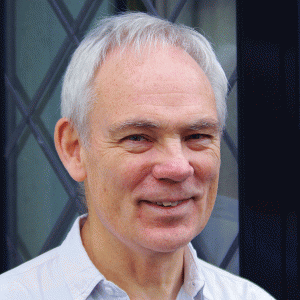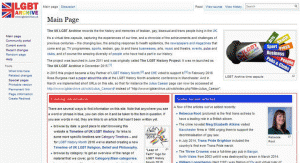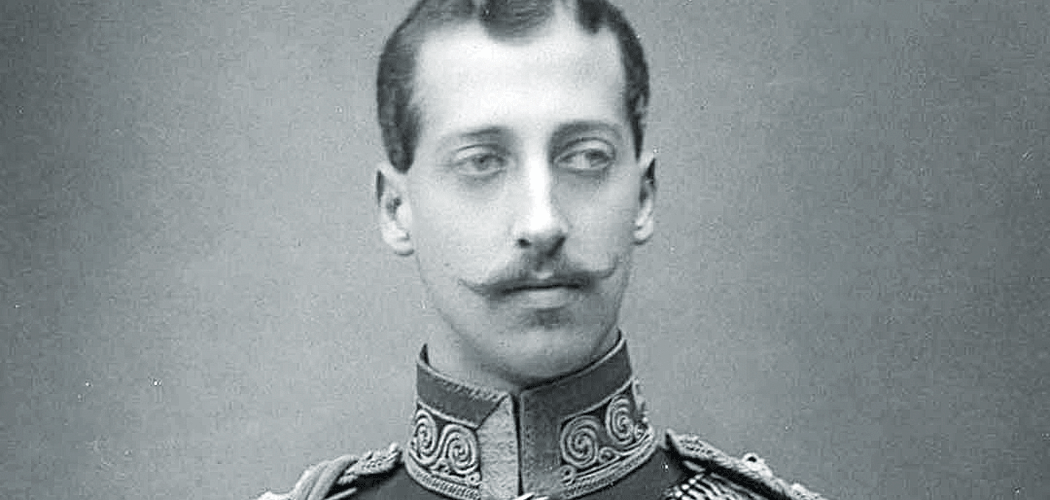With LGBT History Month upon us and 2017 marking the 50th anniversary of the partial decriminalisation of male homosexuality in England and Wales, LGBT Archive founders Jonathan Harbourne and Ross Burgess explain how you can contribute to this growing collection of LGBT history.

The LGBT Archive (LGBTarchive.uk) is the largest online encyclopaedia of British LGBTQ history. Its 4,000-odd articles have been viewed over 9.9 million times – and will reach 10 million during LGBT History Month 2017. It covers LGBTQ facts, data, memories and oral histories since the 1st century BC, including many subjects you won’t find on sites such as Wikipedia.
“I started the website when I was asked to create an event for LGBT History Month at work,” said Jonathan Harbourne. “And I realised that I didn’t know anything about LGBT History! Wikipedia helped me to research and document some facts, but I was mindful that over time equality would change the gay scene; in another 10 or 20 years, I didn’t want people to forget the struggle and the fight that won us our equalities and freedoms, and how we often shone.”
The site’s logo is a time capsule. It uses the same software as Wikipedia, so anyone can register on the site and become an editor.
You can add your own personal recollections, but you’re welcome to add historical facts too: just include references to backup what you’re saying and to give credibility to your account and to the site. Don’t let that stop you from contributing – our chief editor will look over your page. The aim wherever possible is to quote the sources of information in our articles, so that readers can check facts for themselves rather than taking our word for it.

“When Jonathan asked for volunteer editors, I signed up at once,” said Ross Burgess from CHE. “I saw its scope could be better defined as ‘LGBT+’, as it definitely includes intersex people, those who classify themselves as queer, non-binary, pansexual…”
The LGBT Archive covers the whole of the British Islands, and is an indispensable source for historians as well as the general public: a record of past struggles and achievements, and a reminder that there is no guarantee that recent advances for LGBT people could not be reversed.
With so many articles, a good place to start is the Timeline of UK LGBT History or select a Random Page. You may come across facts such as:
• The Ladies of Llangollen scandalised society in 1780 by leaving Ireland and setting up home in Wales as a devoted life-long couple.
• The Chevalier d’Éon was a French ambassador, spy and soldier who lived for 49 years as a man and then for 33 years as a woman. She was a champion fencer and would demonstrate swordsmanship in her ballgowns.
• Queen Victoria’s grandson, Prince Albert Victor, allegedly frequented a gay brothel in Cleveland Street, London. She shipped him off to India on tour just as the scandal hit the press. Had he not died of influenza aged 28 he could have become King instead of George V.
But now new editors are needed, both to assist with the backlog of work to be done, and to better reflect the full spectrum of the LGBT+ community. If you’re inspired to start writing then have a look at the topics or names mentioned in our articles but don’t yet have articles of their own at lgbtarchive.uk/wiki/Special:WantedPages.
Why not try editing or writing a new article a day during LGBT History Month? Or how about creating an activity for LGBT History Month for your school, community group or workplace? Then you could discuss a topic and enter what you talk about or research straight into the archive. If you run an LGBT business, charity or group, write a page about your organisation on the site. We’d love to hear from you!

Register on the site today at LGBTarchive.uk to add memories, photos, pin badges, oral histories. Email [email protected] to receive login details.








